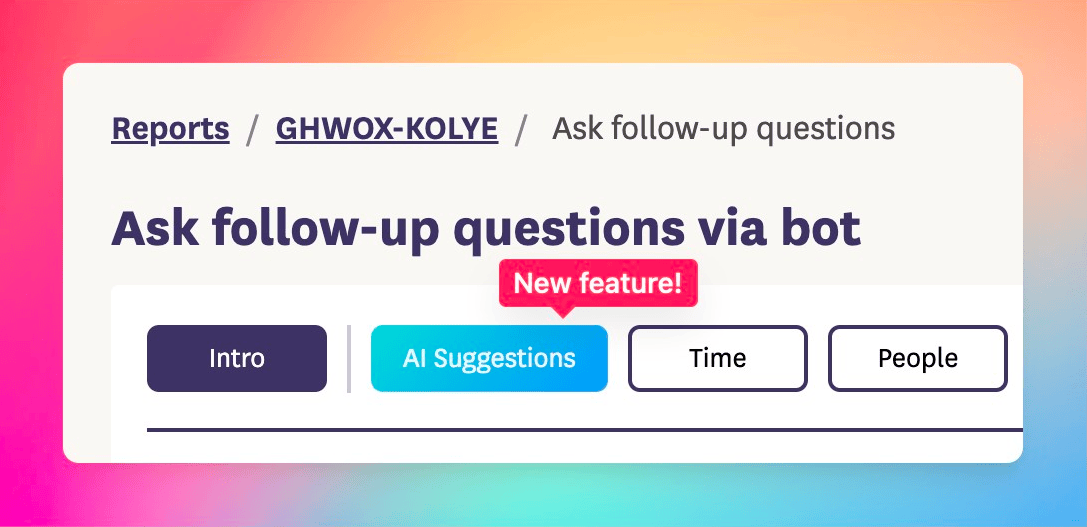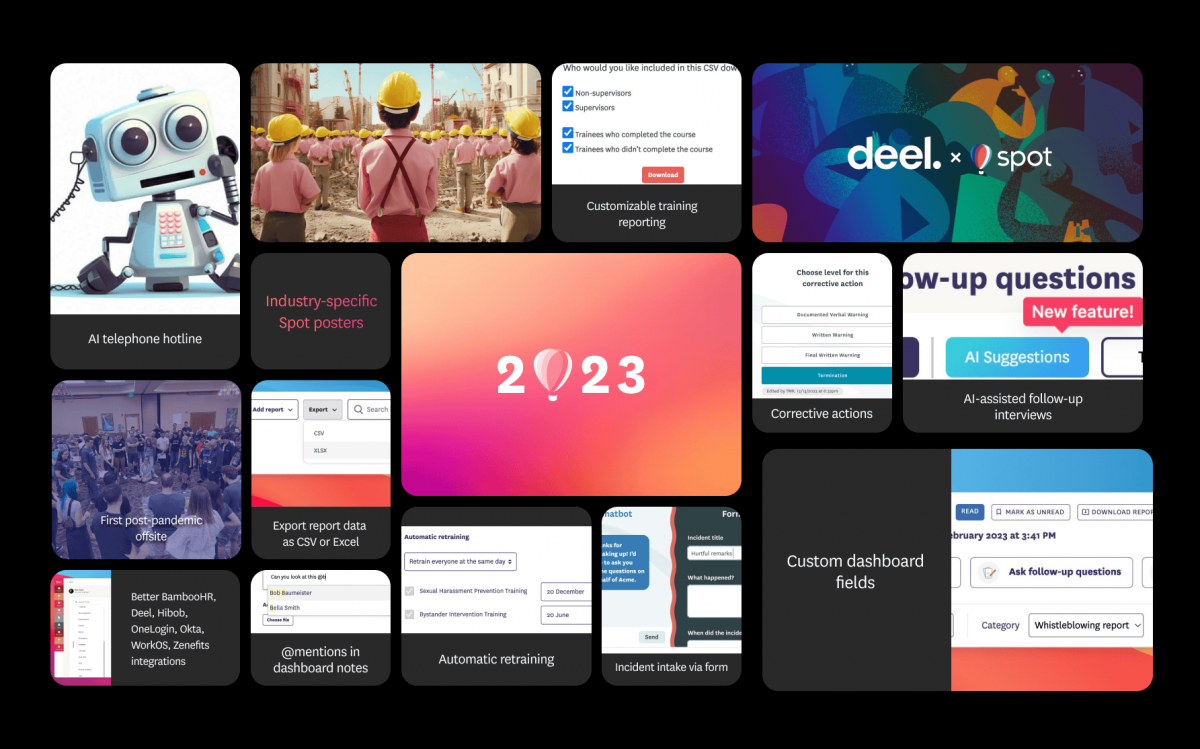Hi there,
This is your monthly roundup of Spot product updates and DEI-related content.
? Request for Reviews
If your organization uses and loves Spot, please consider leaving a review on G2. These help us a lot!
New AI-Assisted Follow-ups!
The Spot dashboard now uses AI to suggest follow-up questions on new reports.

This AI feature prompts you with relevant questions that are, like all of the questions in Spot’s follow-up interview builder, designed to be open and non-leading. You’ll see AI Suggestions when you click “Ask follow-up questions” inside of a new report or a report that has been submitted in the last 30 days.
What a Year ?

In 2023, Spot rolled out:
- Three new incident intake channels: our AI telephone hotline, online forms, and a Slack app
- AI-assisted follow-up interviews
- Automated retraining
- Partnership with Deel’s new HRIS
- Tons of HRIS integrations to automate workflows, including more robust BambooHR, Hibob, Deel, Okta, OneLogin, and Zenefits integrations
- @mentions in dashboard notes for better internal communication on incident reports
- Custom dashboard fields, with dropdowns or free text, for better report tracking
- And more!
Thanks to all of you for your feedback and requests—it’s always great to hear what you need!
Any Minute Now: New Slack App! ?
Our new Slack app lets employees quickly submit concerns or feedback via Slack. Reports submitted through Slack will appear in your Spot dashboard just like reports submitted via Spot’s chatbot or telephone hotline, and can be managed the same way.
The new app will be live imminently. We’ll share details on how to implement it in a separate email.
This ? ? Repeating
☎️ Telephone hotline now available. Spot offers incident intake via chatbot, forms, an app, and now telephone! Call our test hotline to try it out:
?? +1 656-223-1288
?? +31 97010255732
Workplace Culture Stats of the Month
According to McKinsey’s 2023 Women in the Workplace report, Asian and Black women are seven times as likely as white women to be mistaken for someone of the same race or ethnicity, while women with disabilities are 2.5 times as likely to report that their judgment has been questioned and that others have gotten credit for their ideas.
Overall, women experience workplace microaggressions significantly more than men; women with disabilities, LGBTQ+ women, and women of color—in other words, women of typically marginalized identities—are disproportionately affected. (McKinsey)


